What Thief has in common with submarine combat, and other tales from iconic but short-lived developer Looking Glass Studios
The great ghost of Looking Glass hovers over Deus Ex, BioShock, Guitar Hero and more.
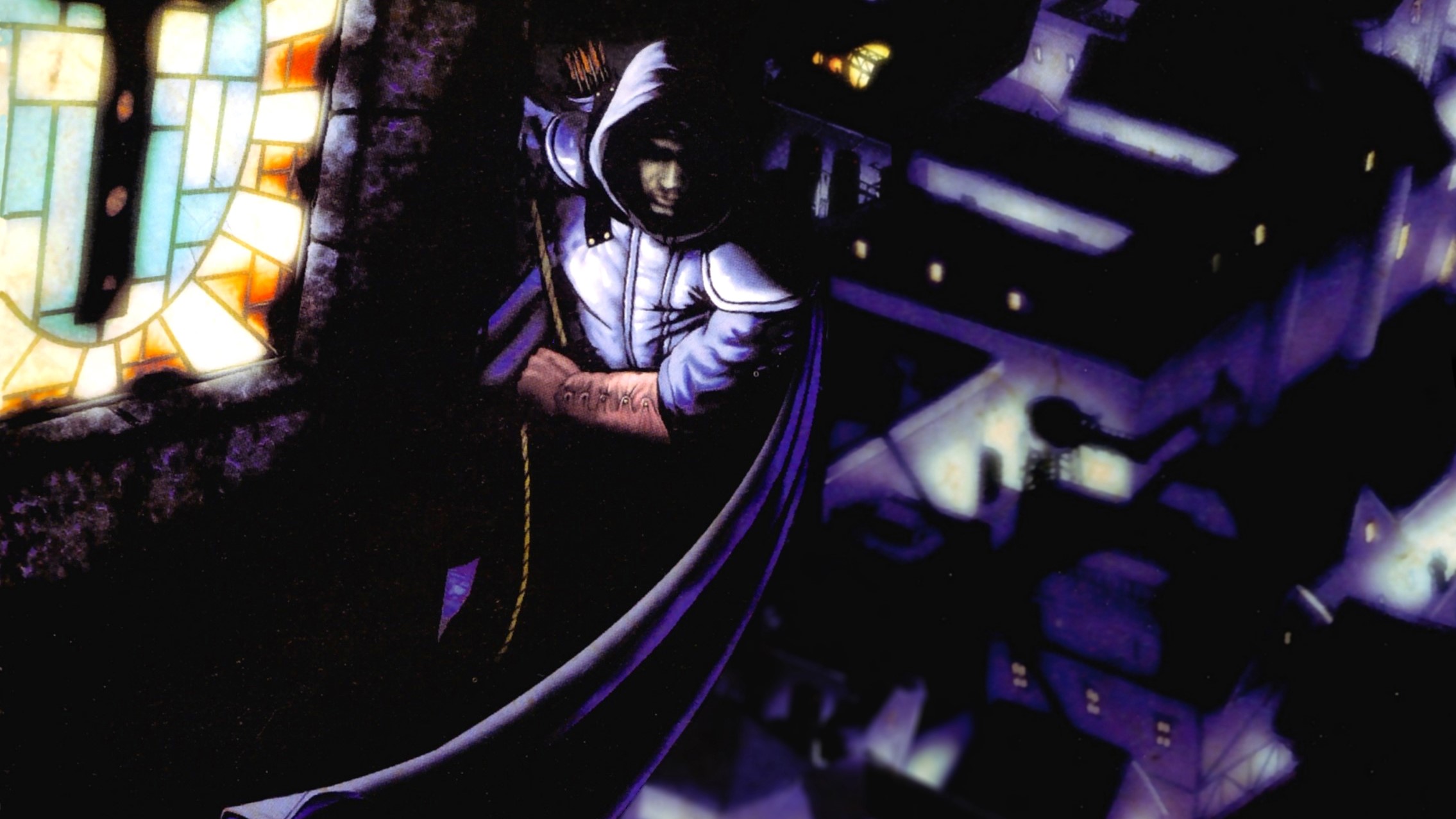
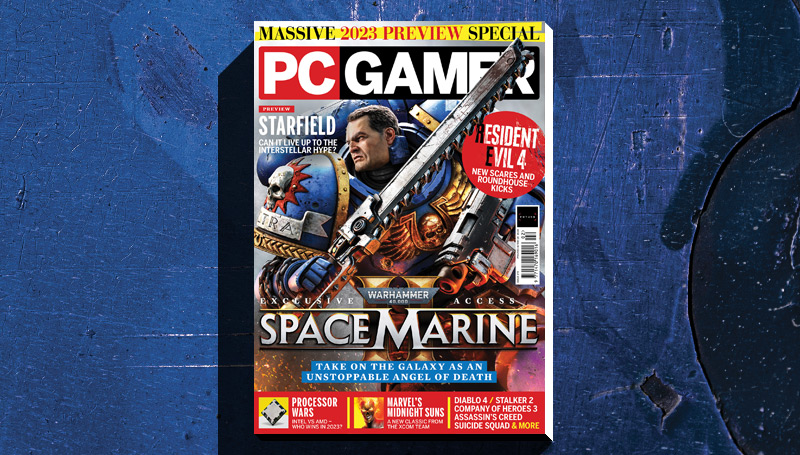
This article first appeared in PC Gamer magazine issue 379 in January 2023, as part of our DNA Tracing series, where every month we delve into the lineages behind iconic games and studios.
The term 'looking glass' readily brings to mind warped fantasy worlds: Alice in Wonderland, twisted smiles and a sense of not quite knowing what you're getting into. As a company splash screen, it felt a fitting intro to Thief—with its Tweedledum guards and servants of the Trickster, minions of chaos and nature who communicated in a kind of rhyming babyspeak ("Call the dark! Call the black! Bringsie forth I call it back!"). Thief's first level certainly takes you down a rabbit hole of sorts: first into the sewers, to surface within the grounds of a manor, then down a well, to finally emerge among the rat poison and beer barrels of Lord Bafford's basement.
Yet take a look at the logo of Looking Glass Studios from the time, and you'll see a telescopic eyeglass—the same strange steampunk device fitted into the right socket of Thief protagonist Garrett, after his own orb was plucked out in some primordial Trickster ritual. And that particular 'looking glass' came about thanks to cutscene writer Terri Brosius.
"I'm taking a risk here," she recalled thinking, in conversation with MIT's GAMBIT Game Lab in 2012. "I'm writing about somebody taking an eye out while chanting some verse. Now I have to wait for three days before I get to hear back whether I'm fired."
Terri, along with Eric Brosius and Greg LoPiccolo, had come to Looking Glass just as their musical careers had begun to falter. The trio had played in a popular Boston band, the Pixies-esque Tribe. But, discovering that their appeal didn't extend far outside the New England area, they gradually migrated to Looking Glass – Terri contributing weird fiction and becoming the voice of the AI antagonist Shodan in System Shock, while Eric and LoPiccolo wrote soundtracks and helped shape the studio's minimalist approach to sound design. Much of Thief's ambience was made up of four-second, looping drones—single held notes rather than a dramatic musical score.
"Less is more," Eric Brosius told GAMBIT. "I found that it almost hypnotised you and sucked you into what you were doing, and made you very aware of stuff around you, because of the simplicity of what you were hearing. We were keenly aware that this would be the first stealth game that would really rely on audio cues."
By the end of Thief's development, LoPiccolo had risen to the role of project lead— appropriately, since Thief centred sound as a mechanic in a way few first-person games have managed, before or since. Players had to listen for mumbling or whistling to determine the location of nearby guards—and take care to avoid marble floors where possible, for fear of alerting those guards in turn. After release, Thief fans would playfully rib Looking Glass for Garrett's 'tap shoes', so noisy were his footsteps.
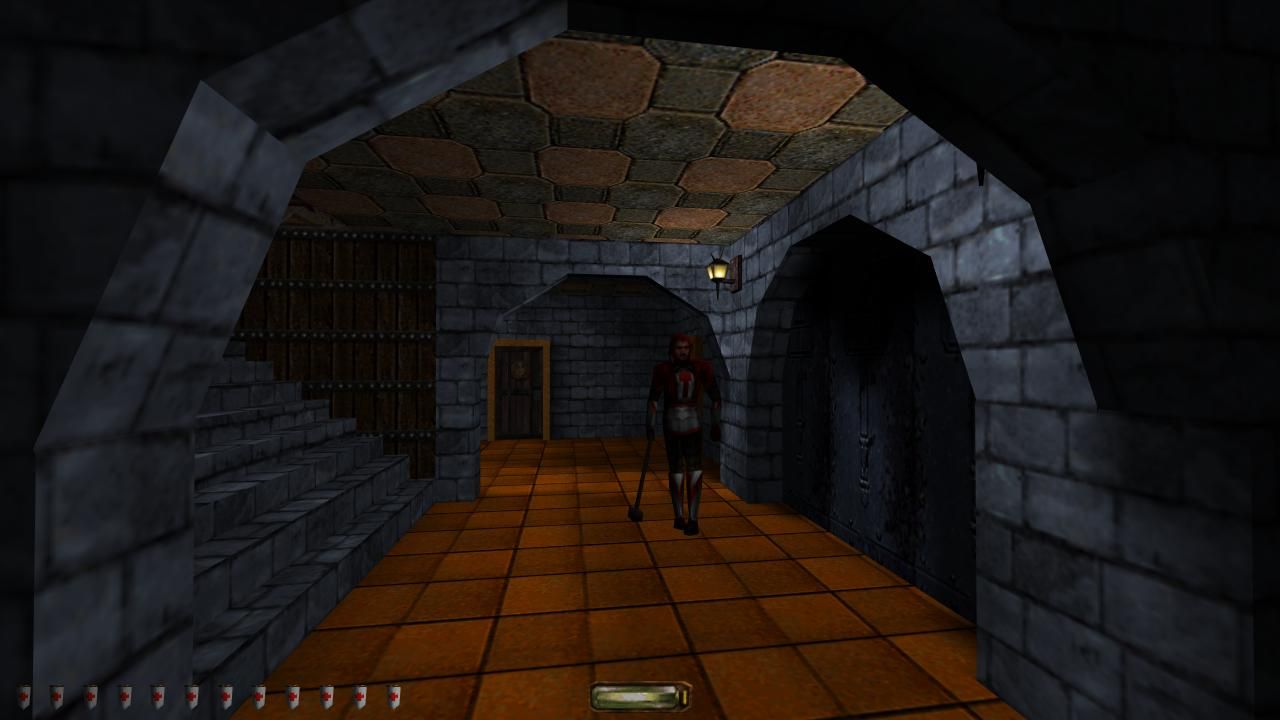
Some of Thief's earliest design concepts, however, came from Ken Levine. The future BioShock designer's first games industry job was at Looking Glass, where he worked alongside Doug Church to invent worlds for the company's next action RPG. His rejected ideas included School for Wizards, Dark Elves Must Die and Better Red Than Undead – the latter a 1950s pulp story about a CIA agent fighting communists in Russia during a zombie outbreak. The seeds for Thief, however, came from Dark Camelot—a retelling of Arthurian legend in which you would play a black-skinned Mordred, and in which King Arthur would be a villainous nobleman guilty of racial prejudice (a theme Levine would ultimately return to in BioShock Infinite).
Keep up to date with the most important stories and the best deals, as picked by the PC Gamer team.
While the swordfighting and medieval fantasy transferred to Thief, almost everything else changed as studio founder Paul Neurath landed on the theme of burglary. "Looking Glass audio was so far ahead of everything else," Levine told GAMBIT. "It was such a powerful tool, and we really wanted to exploit that."
At the time, there was no such thing as the stealth genre—by strange coincidence, Thief and Metal Gear Solid would launch almost on top of each other. And so Levine drew inspiration from submarine games like Silent Hunter—specifically "how powerful you were when you were unseen, and how weak you were when you were spotted."
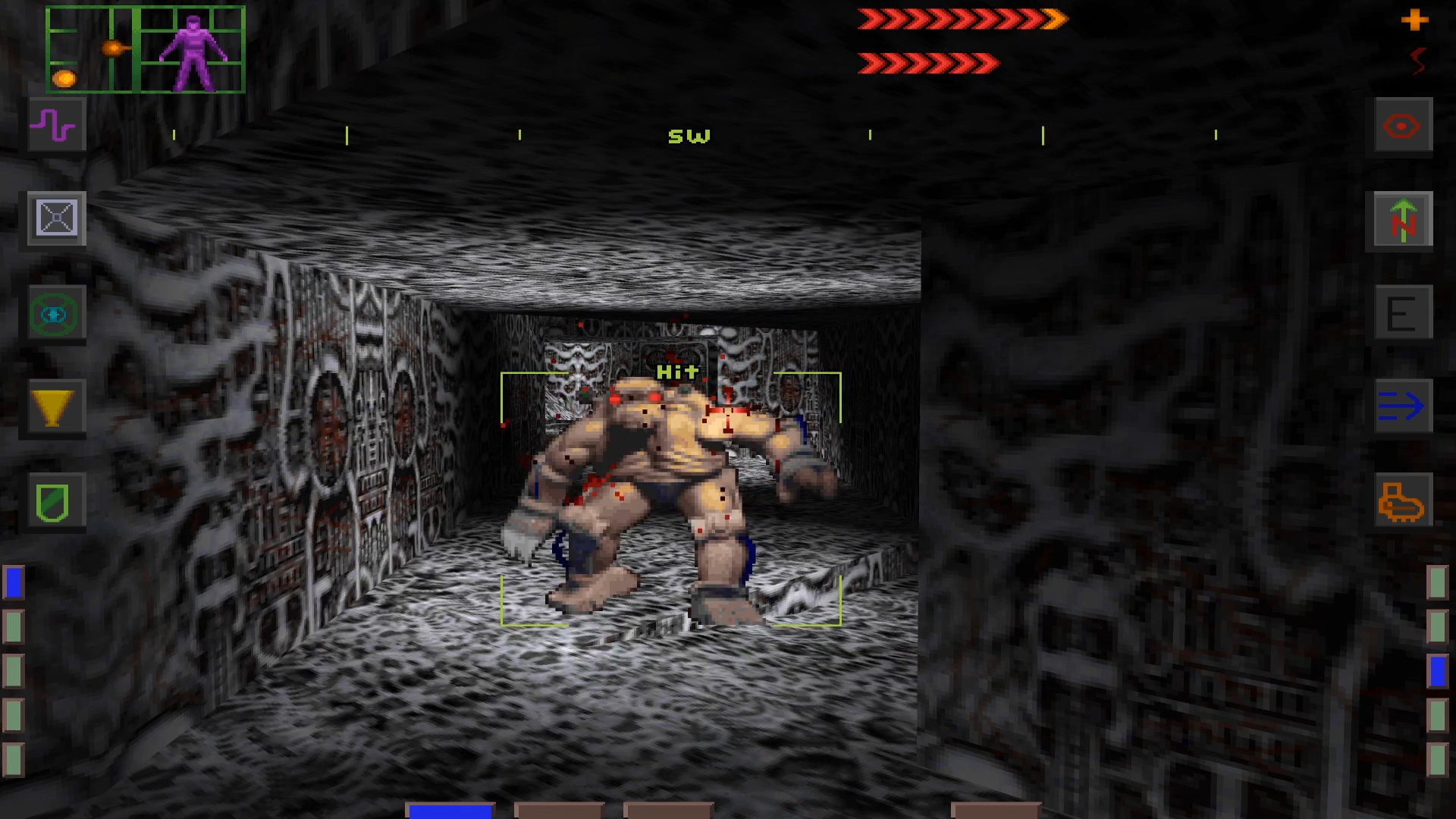
"I started writing documents about thermocline layers," Levine remembered. "Submarines will go through those because they form a barrier to sonar. I started thinking about how we could build a terrain that's based upon sound." Either Church or lead programmer Tom Leonard came up with the idea of using lightmaps in the level to indicate how hidden the player was, adding a visual dimension to Levine's premise.
Soon afterwards Levine left the company, alongside Jon Chey and Rob Fermier, to set up Irrational Games. But they didn't go far: Looking Glass incubated the new studio throughout its first project, System Shock 2—providing tech support on the Thief engine, and of course, sound design. That signature eerie drone is present on the Von Braun, a space station populated by dead bodies and audio logs.
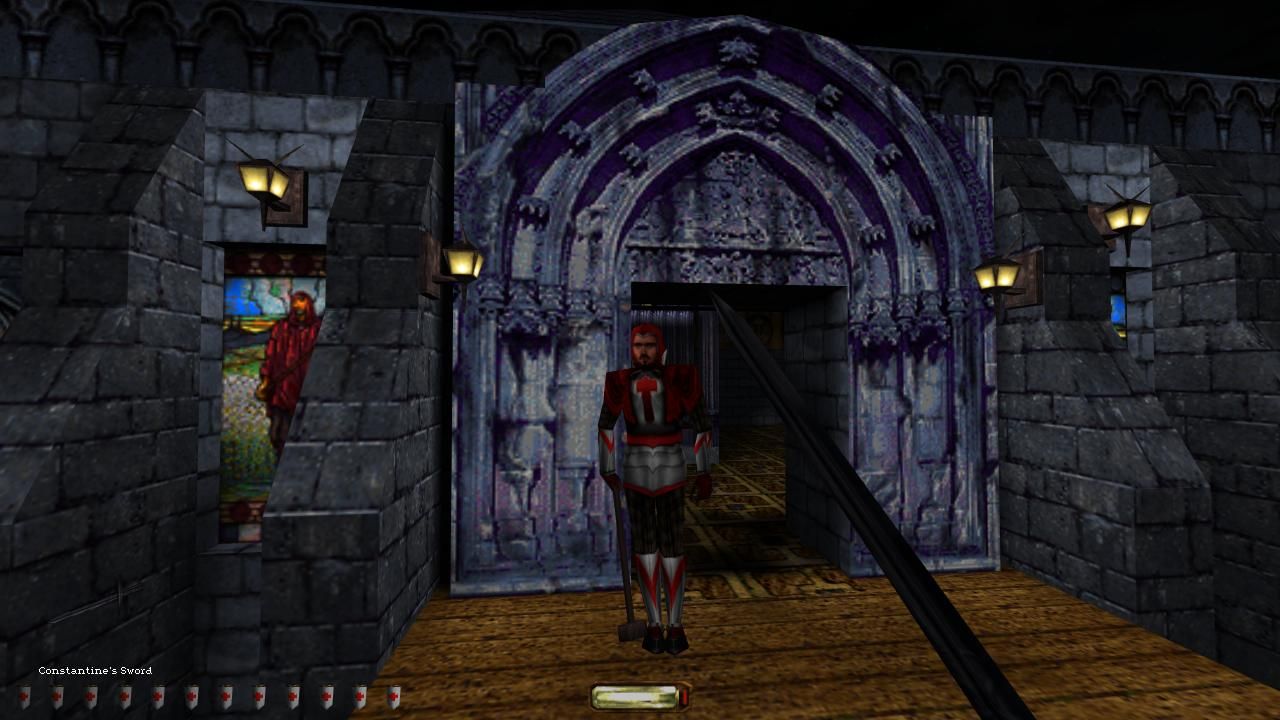
The absence of living NPCs was a design precept Looking Glass had decided on years prior – having made two RPGs in the Ultima universe and grown tired of the limitations of text conversations. The dead, they figured, would draw less attention to the boundaries of their otherwise cleverly simulated worlds. Thief's drunken guards were an extension of the same idea—though alive, speaking to them was out of the question. Your job was to stay out of their way. It's this fictional coherence that makes Looking Glass games so beloved to this day.
System Shock 2 would prove to be a passing of the torch: Looking Glass went out of business the year after its release, leaving Irrational to revive the formula with BioShock. The Austin office that Looking Glass had closed after the Thief team became the Deus Ex team. And the former members of Tribe went on to lead development of Guitar Hero at Harmonix, bringing the Boston music scene to an international audience after all. Looking Glass may be long dead, but as System Shock once proved, there's plenty the dead can still teach us.
Jeremy Peel is an award-nominated freelance journalist who has been writing and editing for PC Gamer over the past several years. His greatest success during that period was a pandemic article called "Every type of Fall Guy, classified", which kept the lights on at PCG for at least a week. He’s rested on his laurels ever since, indulging his love for ultra-deep, story-driven simulations by submitting monthly interviews with the designers behind Fallout, Dishonored and Deus Ex. He's also written columns on the likes of Jalopy, the ramshackle car game. You can find him on Patreon as The Peel Perspective.

